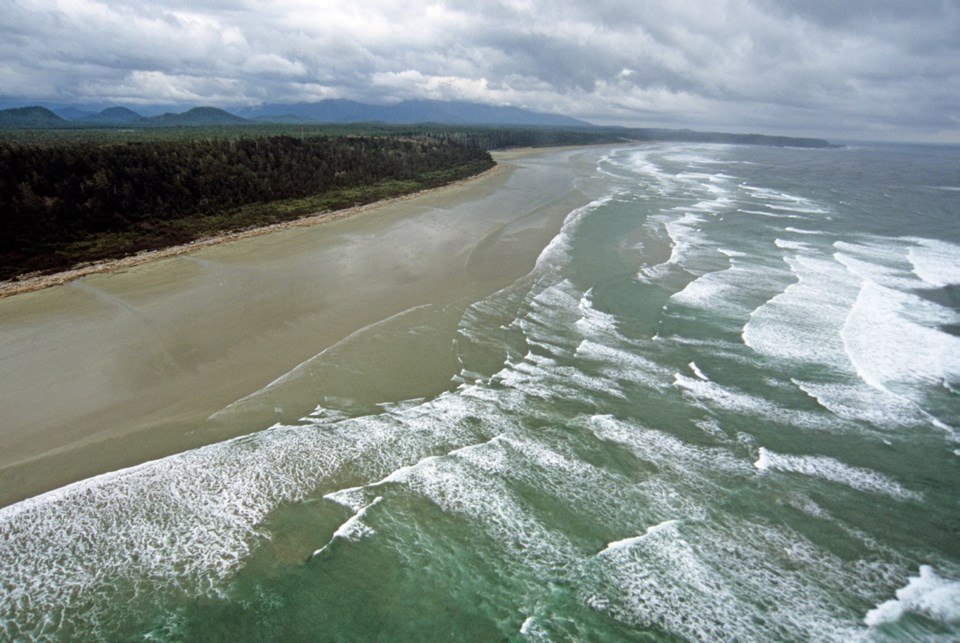As the province makes gains in stopping the spread of COVID-19, Premier John Horgan warned against heading to small tourist-based communities, saying it’s still too early.
“It is not appropriate to load up the Winnebago and put the mountain bikes on top and head to cottage country,” Horgan said Wednesday as he announced that the province has extended its state of emergency until April 28.
On the heels of reports of out-of-town vehicles loaded with bikes and kayaks in small towns and on ferries between the Lower Mainland and Vancouver Island on the long weekend, the premier was asked how the province will deal with those who continue to vacation in small communities.
Horgan called fines a “step too far,” citing the case of a person in Toronto ticketed for sitting on a park bench with their dog. In Toronto, police and bylaw officers can fine those lingering in public green spaces, under a provincial emergency order restricting the use of parks.
B.C. provincial health officer Dr. Bonnie Henry has said going outside for exercise is healthy, provided people maintain physical distance, only go with household contacts and stay close to home.
For the small number of people not adhering to the order, Horgan said, “I think public scorn is as effective a tool as a fine or a ticket or some sort of prosecution from government.”
“If we need to have stronger measures we will,” he said. “But at this point, I believe Dr. Henry’s advice is the appropriate advice.”
Tourist-dependent towns have been asking people to stay away despite the economic cost because, said Horgan, “they understand and recognize if we are going to get through this, we need to eliminate the virus as best we can. But you don’t do that by travelling around British Columbia potentially carrying the virus with you.”
Alert Bay Mayor Dennis Buchanan, 72, who is at home recovering from COVID-19, said he hasn’t left Alert Bay — on Cormorant Island, a 40-minute ferry ride from Port McNeill — since the province declared a state of emergency on March 18. He maintains someone must have brought the virus to the Island and that others in the population of about 500 have since been infected.
Port McNeill Mayor Gaby Wickstrom said it’s a “delicate dance” for towns asking tourists to stay away during the pandemic. They need to do so in a way that will be taken seriously, but also makes people feel welcome to return when the provincial health officer advises that it’s safe to do so.
Tourists have also been asked to stay away from Ucluelet and Tofino. An information station was set up on the long weekend advising drivers of the pandemic and the drain on small-town resources visitors could pose.
Horgan said B.C. Ferries data showing a 92 per cent reduction in ferry traffic from the previous year’s Easter weekend show that “people get it.”
“But despite that extraordinary number, the eight per cent that were travelling were not all essential travellers and they heard it in spades when they came into communities with their recreational vehicles or with their holiday gear looking for a break.”
All of us are looking for a break, said Horgan, but must continue to follow the restrictions in place to flatten the curve. “We are starting to see the results of our sacrifice, dedication and hard work, and we must continue to be steadfast in our commitment to keep our communities safe — for ourselves, our loved ones and our workers on the front lines.”
B.C. Health Minister Adrian Dix said there is “zero chance” that there will be any easing of COVID-19 restrictions in April.
“This is an unprecedented situation in our lifetimes,” said Dix. “So many people have sacrificed so much — sometimes by choice, sometimes not by choice — that we really have to be 100 per cent all in now. We have to continue to do what we’ve been doing. We have to continue to hold the line, continue to bend the curve. This is critically important in the coming weeks.”



